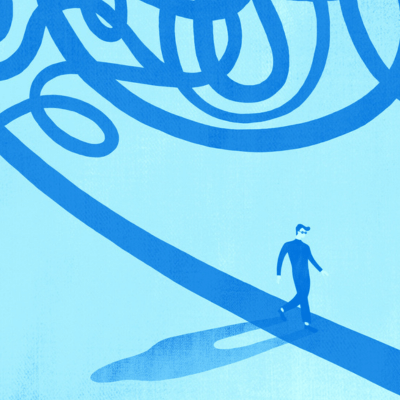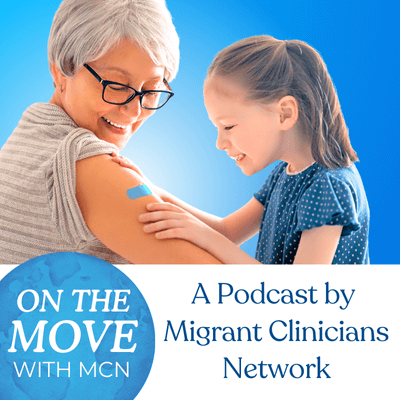In the Field: Puerto Rico Communities Build On Lessons Learned from Maria


[MCN and CSM met with Ana Medrano, a community leader living near Hatillo.]
Last week, Puerto Rico, under severe financial constraints, began cutting food stamp benefits for over a million people. The demand for food stamps went up significantly after Hurricane Maria, which threw many previously stable families into hunger. As climate-strengthened disasters like Maria occur with more frequency, how can the island's community health centers best prepare, particularly when its residents are still reeling from the last big disaster? Two health centers, Hospital General Castañer and Corporación de Servicios Médicos, were the first responders in many areas of Puerto Rico following Hurricane Maria. Now, they are MCN’s first two health center partners in our on-the-ground project, “Mobilizing Communities in Puerto Rico to Meet the Needs of Vulnerable Populations Before, During, and After a Natural Disaster,” which focuses on empowering local health centers to strengthen their leadership and connectivity in the community to build community resilience as a cornerstone of emergency preparedness.
A few days before food stamps began to be cut, MCN’s Amy Liebman, MPA, and Alma Galván, MHC met up with Marysel Pagán Santana, MS, DrPHc, MCN’s Program Manager for Puerto Rico, to conduct community site visits and a day-long workshop for participating members of the health centers. Our MCN team was joined by health center partners and Patricia Doykos, our program officer from the Bristol-Myers Squibb Foundation.
The day-long workshop focused on: analyzing and extracting information from the previously conducted needs assessments; reviewing best practices of community engagement; adopting effective practices relevant for reach community; and sharing and revising work plans. In the workshop evaluation, participants highlighted the importance of capitalizing on their experiences within the response to Hurricane Maria and their skills as professionals in primary health care. One participant called out the project’s significance in providing “the necessary tools so that the community can prepare a plan that allows them to maintain health during and after an emergency.”

[A photo overlooking Castaner and the surrounding community.]
In addition to the workshop, MCN conducted visits to communities where each health center is piloting their community mobilization work. Together with the team from Hospital General Castañer, MCN visited Sector el Treinta in Maricao, a community nestled in the mountainous region in the middle of the Island. The group met with community leaders, “Don” Mencho and a faith-based community organization run by Sisters Juliana, Valentina, and Nelly. These key stakeholders are partnering closely with Hospital General Castañer to foster a community approach to emergency preparedness. The group spoke at length about challenges and opportunities to foster community engagement and involve residents in coming up with solutions in the absence of both immediate and long-term aid. Dr. Rodríguez, medical director of Hospital General Castañer and MCN’s Puerto Rico Senior Medical Advisor, elaborated on the project’s benefits expressing that “with this program, the community will know its resources, the skills they have and will realize how important it is to work as a team, as a family, in collaboration with the Hospital General Castañer.”
With Corporación de Servicios Médicos, MCN visited two neighborhoods in the Bayaney community on the outskirts of Hatillo. In the first neighborhood, community leader Norma Orengo invited us to her home to discuss their efforts. Orengo described how a group of 16 community members coordinated the distribution of food, water, and other supplies to their aging neighbors in the aftermath of Maria. Orengo and her organization have a long history working to improve their community and demonstrate incredible resilience. Orengo also shared ongoing challenges of water services due to damages in the water distribution system. She said that most of the homes in their community have backup cisterns and 55-gallon drums to keep water on reserve when the damaged water system that pipes potable water to the community malfunctions.

[MCN and CSM met with Norma Orengo, a community leader living in the Bayaaney community on the outskirts of Hatillo.]
Not far from this neighborhood is another area that was hard-hit by Maria, where the team met with Ana Medrano, a community leader who is also a retired nurse. Medrano described the life-threatening obstacles of getting prescription medicine for elderly patients, many of whom were confined to their home or to their beds. Not only did they need medication but they needed food and adult diapers. She also shared her personal trauma of trying to make her own medication for hypertension last and how the stress of Maria impacted her health, resulting in dangerously high blood pressure.
It was clear in many of the conversations that although Hurricane Maria swept through Puerto Rico almost one and a half years ago, health centers and their community partners are incredibly resilient and continue to work to repair the damages to community members’ health, including their mental health. Meanwhile, new pressures -- like the sudden loss of food assistance -- along with ongoing stressors like climate change may continue to hinder progress. “Despite these pressures, community members demonstrated an understanding that the Island will again be tested as climate change advances, and a resolve to join together to prepare,” noted Pagán Santana. MCN is proud to facilitate their efforts at community mobilization.
A special thanks to Sofia Carrasco for her help with this blog.
Like what you see? Amplify our collective voice with a contribution.
Got some good news to share? Contact us on our social media pages above.
Return to the main blog page or sign up for blog updates here.
- Log in to post comments






